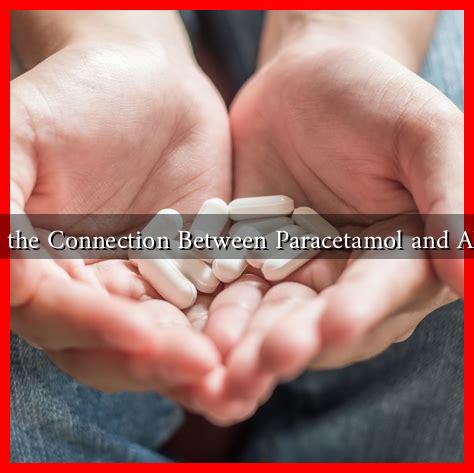-
Table of Contents
What Is the Connection Between Paracetamol and Allergies?
Paracetamol, also known as acetaminophen, is one of the most widely used over-the-counter medications for pain relief and fever reduction. While it is generally considered safe for most individuals, there has been growing interest in understanding its connection to allergies. This article explores the relationship between paracetamol and allergies, examining potential allergic reactions, underlying mechanisms, and relevant research findings.
Understanding Paracetamol
Paracetamol is a non-opioid analgesic that works by inhibiting the production of prostaglandins in the brain, which are chemicals responsible for pain and inflammation. It is commonly used to treat conditions such as:
- Headaches
- Muscle aches
- Arthritis
- Backaches
- Fever
Despite its widespread use, some individuals report experiencing allergic reactions after taking paracetamol. Understanding these reactions is crucial for both healthcare providers and patients.
Allergic Reactions to Paracetamol
Allergic reactions to paracetamol are relatively rare but can occur. Symptoms may include:
- Skin rashes or hives
- Itching
- Swelling of the face, lips, or tongue
- Difficulty breathing or wheezing
In severe cases, an allergic reaction can lead to anaphylaxis, a life-threatening condition that requires immediate medical attention. It is essential for individuals who suspect they are allergic to paracetamol to seek medical advice and consider alternative pain relief options.
Mechanisms Behind Allergic Reactions
The exact mechanisms that lead to allergic reactions from paracetamol are not fully understood. However, several theories have been proposed:
- Metabolism of Paracetamol: Paracetamol is metabolized in the liver, where it can produce reactive metabolites. In some individuals, these metabolites may trigger an immune response, leading to allergic symptoms.
- Cross-Reactivity: Some individuals who are allergic to other medications or substances may experience cross-reactivity with paracetamol, resulting in an allergic reaction.
- Genetic Predisposition: Certain genetic factors may make individuals more susceptible to developing allergies, including those related to medications like paracetamol.
Research Findings
Research on the connection between paracetamol and allergies is still evolving. A study published in the journal *Allergy* found that children who frequently used paracetamol were at a higher risk of developing asthma and allergic conditions. The study suggested that the use of paracetamol might influence the immune system’s development, potentially leading to increased allergy susceptibility.
Another study published in *Pediatrics* indicated that paracetamol use during pregnancy was associated with a higher risk of asthma in children. While these studies do not establish a direct cause-and-effect relationship, they highlight the need for further investigation into the long-term effects of paracetamol on allergic conditions.
Practical Considerations
For individuals with known allergies or sensitivities, it is crucial to approach paracetamol use with caution. Here are some practical tips:
- Consult with a healthcare provider before taking paracetamol, especially if you have a history of allergies.
- Monitor for any unusual symptoms after taking paracetamol and report them to a healthcare professional.
- Consider alternative pain relief options, such as ibuprofen or aspirin, if you suspect an allergy to paracetamol.
Conclusion
The connection between paracetamol and allergies is a complex and evolving area of research. While allergic reactions to paracetamol are rare, they can occur and may be influenced by various factors, including metabolism, cross-reactivity, and genetic predisposition. As more studies emerge, it is essential for healthcare providers and patients to remain informed about the potential risks associated with paracetamol use. For those with allergies, consulting a healthcare professional is crucial to ensure safe and effective pain management.
For more information on allergies and medications, you can visit the Australian Society of Clinical Immunology and Allergy.

